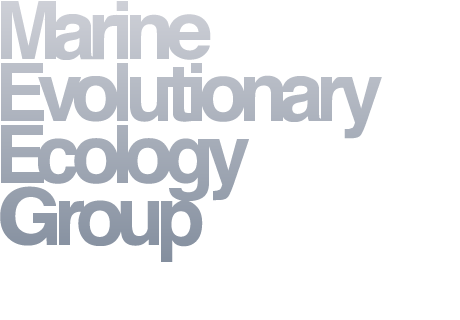Professor Dustin Marshall
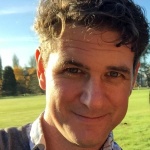 Professor Dustin Marshall is head of the Marine Evolutionary Ecology Group in the School of Biological Sciences, Monash University.
Professor Dustin Marshall is head of the Marine Evolutionary Ecology Group in the School of Biological Sciences, Monash University.
Prior to working at Monash University, Dustin was at the University of Queensland, after a post-doctorate at the University of New South Wales and brief research stints at the Oregon Institute of Marine Biology.
Dustin is also the Director and founder of the Centre for Geometric Biology an interdisciplinary research team changing the way we study, understand and manage natural systems.
Dustin is an editor of three journals — Ecology Letters, Functional Ecology and Evolution — and Deputy Editor-in-Chief of Oikos.
Dustin has published more than 150 scientific publications.
Research interests
I am interested in variation, be it genetic or phenotypic, and how that variation affects the evolution and ecology of marine organisms.
My original research focus was on marine life-histories, specifically how phenotypic links among life-history stages affect the population dynamics of marine populations.
Since then, my interests have spread to include using quantitative genetics approaches to understand the limits of adaptation in marine organisms and the evolution of life histories.
I’ve become interested in how evolutionary processes affect the dynamics of marine communities as well as how marine communities function more generally.
I think there are some unifying themes in our apparently disparate research programs, but I think it will take a few years for these threads to be drawn together. One thing that does unify the program already however is the study system — we focus almost entirely in sessile marine invertebrates. Specifically, we work on ‘fouling’ organisms, a term that covers the critters that grow on man-made structures in temperate coastal regions. This system is not particularly glamorous but is extremely tractable for asking ecological and evolutionary questions.
If you are interested in joining the lab, please email me.
Monash University profile: Dustin Marshall
Google Scholar profile: Dustin Marshall
Dr Hayley Cameron (post-doctoral research fellow)
I am interested in the evolutionary ecology of life-histories, particularly within species. I combine manipulative experiments with statistical and population modelling approaches to better understand the forces that shape diversity in life-history strategies.
I am currently investigating how offspring size can determine the energetic costs of development across the tree of life.
In my PhD, I investigated how competitive and facilitative interactions among offspring of different sizes might maintain variation in offspring size at various biological scales –that is, both within clutches produced by the same female and among females from the same population.
Monash University profile: Hayley Cameron
Google Scholar profile: Hayley Cameron
Alex Blake (PhD candidate)
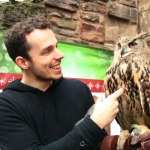 I am broadly interested in how natural populations and communities respond to change using both experimental and modelling approaches, and extracting actionable insights from this work for policy.
I am broadly interested in how natural populations and communities respond to change using both experimental and modelling approaches, and extracting actionable insights from this work for policy.
Harpacticoid copepods play an important role in the food webs of many semiaquatic, freshwater, and marine habitats. The Harpacticoid copepod Tisbe sp. is also used as high quality live feed in the aquaculture industry. In my PhD, I will be experimentally evolving Tisbe sp. to evaluate the eco-evolutionary response to food-rich and food-poor environments. I will couple this experimental work with integral projection models (IPMs) to predict future population dynamics.
Emily Richardson (PhD candidate)
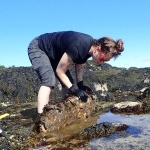 I am interested in understanding the ecological and evolutionary consequences of particular life history strategies.
I am interested in understanding the ecological and evolutionary consequences of particular life history strategies.
Most animal species develop via complex life cycles, passing through stages to reach maturity.
My PhD aims to investigate the evolution of complex life histories and whether ecological factors can predict when and why life history transitions occur.
Belinda Comerford (PhD candidate)
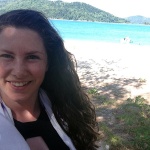 I aminterested in optimising the aquaculture of micro- and macro-algae for human consumption.
I aminterested in optimising the aquaculture of micro- and macro-algae for human consumption.
The aquaculture industry is growing at a rapid rate, supplying much of the world with sources of food, feed stocks and high-value chemicals. As a relatively novel space, the aquaculture industry has immense potential for optimization.
My PhD aims to explore experimental evolution can be used to enhance land-based aquaculture processes to produce desired traits and molecules at sustainable and productive rates.
Google Scholar profile: Belinda Comerford
Ashley Potter (PhD candidate)
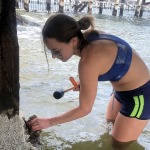 I am interested in the causes and consequences of metabolic rate in sperm.
I am interested in the causes and consequences of metabolic rate in sperm.
All metazoans reproduce sexually using sperm which means that they are extremely abundant. Sperm fulfils essential roles in reproduction and offspring success meaning they are not biologically inert as once thought.
The aims of my PhD are to take a macroevolutionary approach by looking at interspecific variation of sperm metabolism as it scales with size, and take a microevolutionary approach by investigating selection on metabolism as it covaries with other traits in several broadcast spawners.
Sam Ginther (PhD candidate)
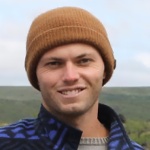 I am broadly interested in different life-history strategies and their effect on the evolution of biological communities.
I am broadly interested in different life-history strategies and their effect on the evolution of biological communities.
My PhD research examines reproductive effort across taxa and the consequences it may have on the flux of energy in biological systems.
Google Scholar profile: Samuel C Ginther
George Jarvis (PhD candidate)
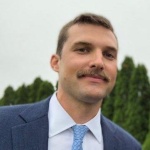 I am interested in the effects of larval experience on adult performance.
I am interested in the effects of larval experience on adult performance.
For animals with multiple life stages, traits that benefit larval success are not always beneficial in later stages of development.
By comparing life history strategies among animals that differ in their developmental mode, I aim to identify the evolutionary mechanisms that facilitate ontogeny throughout complex life cycles.
Google Scholar profile: George Jarvis
Michaela Parascandalo (PhD candidate)
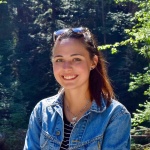 I am interested in evolutionary ecology and physiology.
I am interested in evolutionary ecology and physiology.
During my PhD I will be taking advantage of the evolved lines of algae and copepods to investigate how size and resource supply affect metabolic rates and how interactions with other species impact these relationships.
I will use a combination of lab and field experiments to test my ideas.
